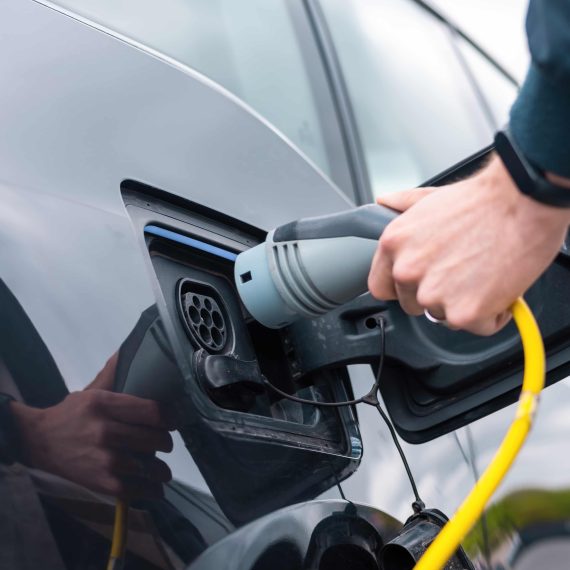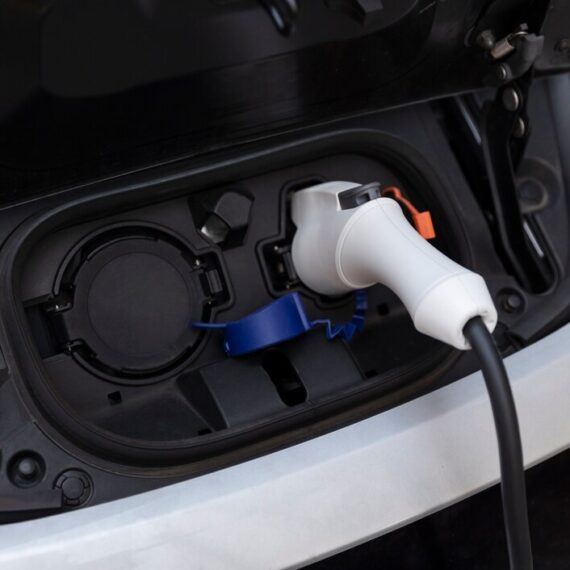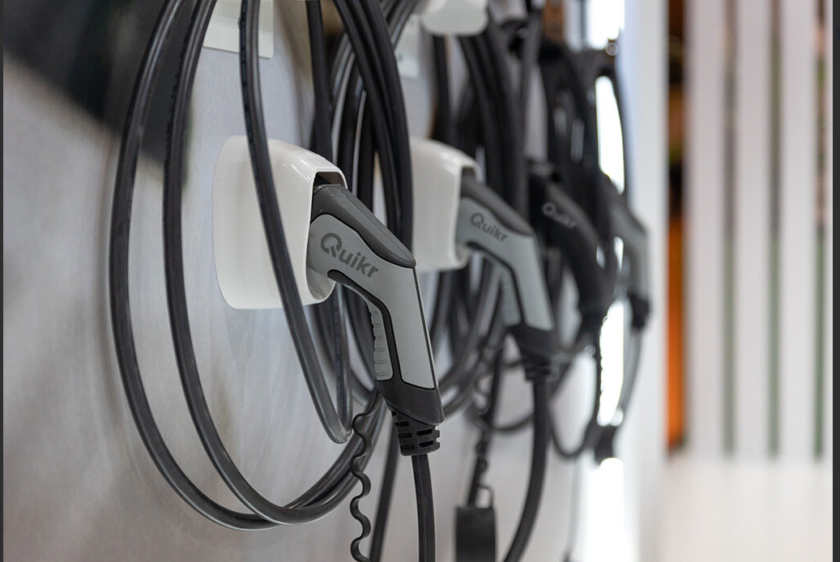The UAE is rapidly embracing electric vehicles (EVs), with Dubai and Abu Dhabi leading the charge. As more residents switch to EVs, understanding the different EV charging plugs, EV charging cable types, and types of EV charging cables becomes critical. This guide will help UAE drivers navigate the complexities of EV charging cables, ensuring compatibility, safety, and efficiency.
EV Charging Cable Guide: Make the Right Choice
What Do You Need to Know?
EV charging cables are not one-size-fits-all. Key factors to consider:
- Plug type (Type 1, Type 2, CCS, CHAdeMO)
- Charging mode (Mode 2 vs. Mode 3)
- Power rating (amps, kW, single/three-phase)
- Length and durability for UAE’s climate
Get a Home Charger (Wallbox)
While portable Mode 2 EV charging cables work for emergencies, installing a home charger (Mode 3) is ideal for UAE residents.
Why a Home Charger?
- 3x Faster Charging: 7.4 kW vs. 2.3 kW with standard sockets.
- Safety: Built-in surge protection and temperature control.
- Smart Features: Schedule charging during off-peak DEWA hours.
Popular UAE Home Chargers:
- Tesla Wall Connector (11 kW, Type 2)
- ZES UAE Home Charger (22 kW, three-phase)
- DEWA Green Charger (7.4 kW, Type 2)
Choose a Mode 3 EV Charging Cable
Mode 3 cables are the gold standard for home and public charging in the UAE.
| Feature | Mode 2 Cable | Mode 3 Cable |
|---|---|---|
| Power Output | 2.3–3.7 kW | 7–22 kW |
| Safety | Basic | Advanced (ground fault protection) |
| Best For | Occasional use | Daily charging |
Tip: Always use a Mode 3 cable with UAE-approved home chargers for optimal performance.
Choose the Right Plug Type

The UAE primarily uses these EV charging plug types:
Type 1 (SAE J1772)
- Compatible EVs: Older models like Nissan Leaf (pre-2018).
- Max Power: 7.4 kW (single-phase).
- Rarity: Being phased out in the UAE.
Type 2 (Mennekes)
- Compatible EVs: Tesla, BMW, Mercedes, Audi.
- Max Power: 22 kW (three-phase).
- UAE Standard: Used in 90% of public chargers.
CCS Combo (Type 2 + DC)
- Compatible EVs: Porsche Taycan, Hyundai Kona.
- Max Power: 350 kW (DC fast charging).
- Common at: DEWA fast chargers, ENOC stations.
CHAdeMO
- Compatible EVs: Older Nissan Leaf, Mitsubishi Outlander.
- Max Power: 50 kW.
- Rarity: Limited to a few stations in Dubai.
Recommendation: Type 2 and CCS plugs are future-proof for UAE EV owners.
Choose the Right Amp, kW, and Phase Version
Amps and kW Explained
| Amps | Voltage | Power (kW) | Charging Speed |
|---|---|---|---|
| 16A | 230V | 3.7 kW | 20–30 km/h |
| 32A | 230V | 7.4 kW | 40–50 km/h |
| 32A | 400V | 22 kW | 100–120 km/h |
Single-Phase vs. Three-Phase
- Single-Phase (7.4 kW): Standard for UAE homes.
- Three-Phase (22 kW): Requires commercial-grade electrical setups.
UAE Tip: Most villas and apartments support single-phase 7.4 kW charging.
Choose the Right Length
- 3 Meters: Ideal for compact home garages.
- 5 Meters (Most Popular): Balances flexibility and safety.
- 7+ Meters: For public stations where sockets are far from parking spots.
Warning: Longer cables (7m+) may overheat in UAE’s summer heat.
Choose the Right EV Charging Cable Quality

Avoid cheap, uncertified cables that pose safety risks.
What to Look For:
- Certification: TÜV, CE, or DEWA-approved.
- Durability: IP67 rating (dust/waterproof).
- Temperature Resistance: -30°C to +50°C.
Top UAE Brands:
- Tesla (Type 2, 7.4 kW)
- ZES UAE (Type 2, 22 kW)
- EVCharge4U (CCS Combo, 350 kW)
Choose Recyclable (Eco-Friendly Options)
UAE initiatives like Dubai’s Zero Carbon Policy promote sustainable charging solutions.
Eco-Friendly Cables:
- Recycled Materials: Up to 80% recycled copper/plastic.
- Low-Halogen: Reduces toxic emissions if burned.
- DEWA Green Charger Cables: Locally certified for sustainability.
Choose the Right Accessories
Enhance your EV charging experience with:
- Cable Organizer: Avoid tripping hazards.
- Locking Mechanism: Prevent theft at public stations.
- Carry Case: Protect cables from UAE’s harsh sun.
Which Cable is Best for EV Charging?
The “best” cable depends on your vehicle, location, and charging needs:
- UAE Recommendation:
- Type 2 (Mennekes): Standard for most EVs (Tesla, BMW, Mercedes) and public chargers.
- CCS Combo: Ideal for DC fast charging at stations like DEWA and ENOC.
- Home Charging: Mode 3 cable (7.4 kW, 32A) for safety and speed.
- Portable Use: Mode 2 cable (3.7 kW) for emergencies.
What Are the Different EV Charging Cables?
EV cables vary by plug type and charging mode:
| Type | Description | Common in UAE |
|---|---|---|
| Mode 2 | Portable cable with a household plug (3.7 kW). Slow, for occasional use. | Rare (backup only) |
| Mode 3 | Fixed or detachable cable for home/public chargers (7–22 kW). Most common. | Yes |
| Type 1 | Single-phase plug (7.4 kW). Used in older Nissan Leafs. | Phasing out |
| Type 2 | Three-phase plug (22 kW). Standard for EU models and UAE public stations. | Yes |
| CCS Combo | Type 2 + DC pins for ultra-fast charging (350 kW). Used in Porsche, Audi. | Yes |
| CHAdeMO | Japanese DC plug (50 kW). Limited to older models. | Rare |
What Type of Wire is Used for EV Charging?
EV cables require specialized wiring:
- Conductors: Thick copper wires for high current (32A–350A).
- Insulation: Heat-resistant (up to 50°C) and UV-protected for UAE’s climate.
- Safety Features:
- Shielding: Prevents electromagnetic interference.
- Certifications: TÜV, CE, or DEWA-approved for fire safety.
- Common Specifications:
- Home Chargers: 7.4 kW (32A, single-phase).
- Public Chargers: 22 kW (three-phase) or 350 kW (DC).
What Are Type 1 and Type 2 EV Chargers?
- Type 1 (SAE J1772):
- Design: 5-pin, single-phase.
- Power: Up to 7.4 kW.
- Compatibility: Older Asian/American EVs (e.g., Nissan Leaf pre-2018).
- UAE Status: Rarely used, being replaced by Type 2.
- Type 2 (Mennekes):
- Design: 7-pin, supports single/three-phase.
- Power: Up to 22 kW (AC) or 350 kW (DC with CCS).
- Compatibility: Most EU models (Tesla, BMW) and UAE public networks.
- UAA Status: Dominant standard for AC charging.
Choosing the right EV charging cables and different EV charging plugs ensures seamless charging in the UAE’s evolving EV landscape. Prioritize Type 2 or CCS Combo plugs, Mode 3 cables, and DEWA-certified equipment for reliability.
Need Expert Help?
📞 Call +971 4 279 7997 for a FREE consultation
🌐 Visit QuikRev’s EV Charging Solutions to buy certified cables and chargers.





